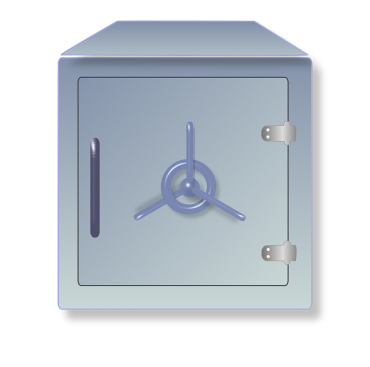If you own a small business, you have a target on your back. Many hackers are now targeting small business establishments and stealing their data. Unfortunately, many of these businesses are often unaware of these data breaches until it is too late.
According to a 2010 privacy breach report, one-fifth of all breached data since 2005 – over 500 million sensitive documents obtained illegally – were from small to medium sized businesses.
Studies have also shown that small businesses with data breaches were most likely to close up shop within two years partly as a result of the significant financial losses suffered.

So, what can all business owners do to protect their sensitive documents and prevent data breaches?
Protect and Encrypt all Sensitive Data
At the core of every business is sensitive data that can either make or break the organization. Identify your most sensitive data and then encrypt it using the highest grade encryption technology.
Store that information in the safest places possible. Some business owners move all sensitive client information to encrypted or passworded removable thumb drives and then keep that data in a high-end security deposit box, safe, or vault.
These double precautions mean that if someone eventually gets their hands on the thumb drive, you can be sure that accessing the information would be even more difficult.
Provide Limited Access Control
All your data must have some oversight. Therefore, you cannot provide unlimited access to all your data to everybody.
Make sure to provide access to select individuals on an as-needed basis. Even then, have a way of tracking and monitoring whoever accesses those files. That way, you know whom to hold responsible if anything goes wrong.
Be Careful About Carrying Sensitive Information on Mobiles
With the rise and popularity of BYOD (bring your own devices) in most workplaces, there’s an increased risk of your workers using their devices for both work and personal stuff. So, provide the necessary security for data taken from your office and available on a mobile.
Information on mobile devices is highly unsafe. All a hacker needs to “sniff” out your private information is to have access to the same public WiFi your employee uses.
Whatever the case, you might want to prevent the copying of files from your internal network. That way, there’s no risk of data theft due to an employee’s carelessness.
Migrate to Paperless Office
Identity thieves often sift through mounds of waste paper to find whatever they need. So, you might want to consider migrating from an office that runs on paper to a paperless one.
Paperless office software like Lucion’s recently updated Filecenter is designed to scan and properly categorize your documents, making them very easy to find whenever you need them. Once you are done scanning all the documents, shred all documents and send them to the incinerator immediately.
Backup Data to the Cloud
Your computers and internal networks can fail or crash. To prevent any major losses fi/when this happens, you should consider backing up all your encrypted data up to the cloud.
Extra Security Tips
Always verify all downloaded documents. If they have questionable sources, don’t download until you can confirm that it is the legitimate file. Secure all office WiFi, use proper passwords and change them every few weeks. Use only secure networks for sensitive files.
With these measures in place, it would take a small army of hackers determined to get your information to access your files; and even then, they may not be able to read your documents.
The writer of this article, Oscar King, often writes columns advising small and medium-sized business owners of the best ways to secure their business. If you wish to learn more about Oscar you can visit his profile on Google+.

